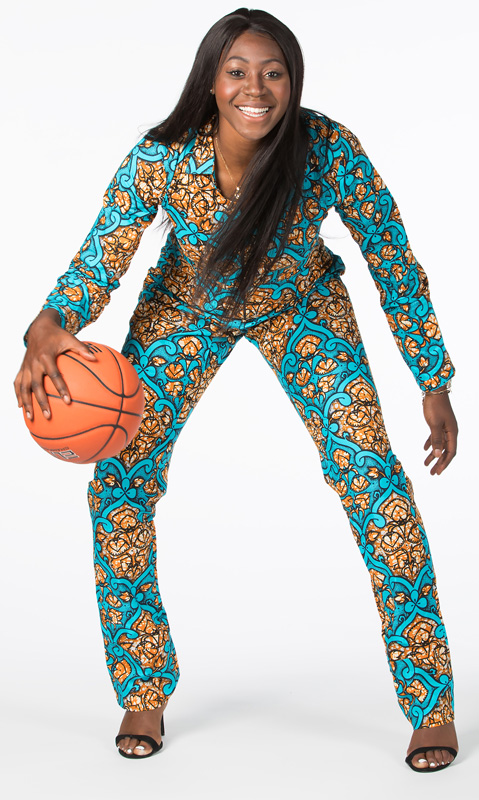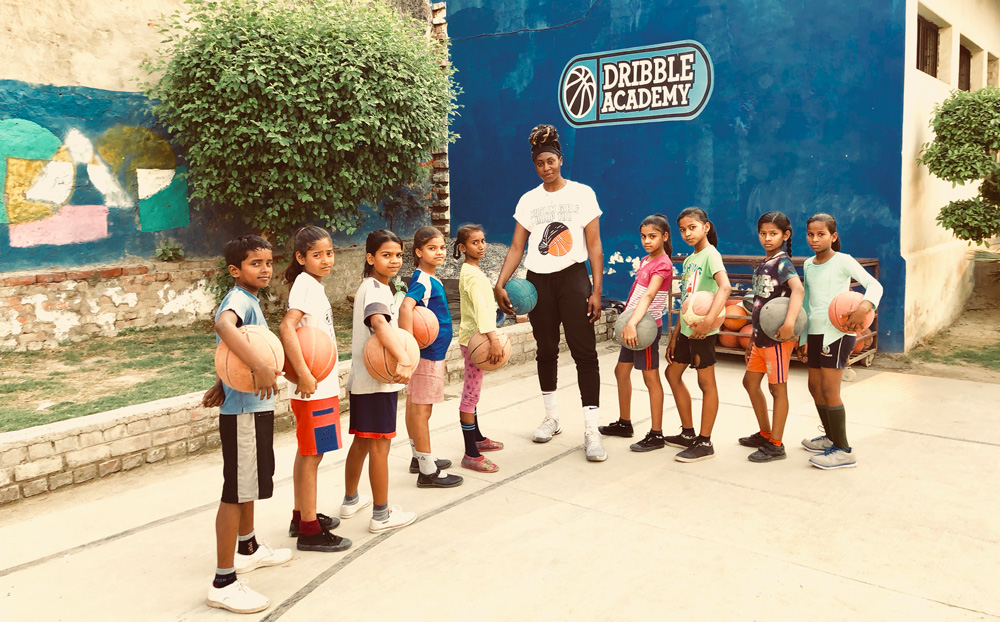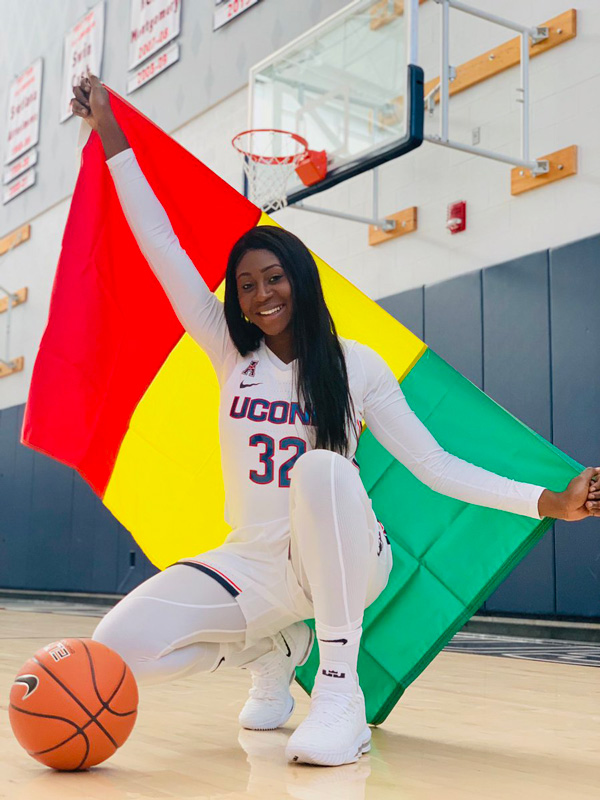
Batouly Camara: "My ultimate purpose is to create spaces for women to dream."
Husky forward Camara is a first-generation college student whose parents moved to NYC from Guinea, West Africa.
"Growing up, how many of you felt the possibilities were endless?" asks Batouly Camara '19 (ED), '20 MA of her UConn TEDx audience. The 6'2" Huskies WBB forward then tells the sea of raised hands to "imagine a girl being told she could be one of two things: a married wife or a domesticated worker."
When Camara's parents moved from Guinea, West Africa, to New York City, they brought their culture and its values with them. It wasn't until she convinced her mom to let her play basketball at age 12 that Camara says the world opened up to her. And now she wants to spark the imaginations of girls like her, to help them "live beyond the scope of their realities."
What was it like going to your parents' homeland for the first time in 2017 as a 21-year-old?
It was an incredibly meaningful experience. I grew up hearing my mom's stories about living in Guinea. Going there gave me a better understanding of my mom and her adjusting when she came to America.
I was there for two and a half months. I wanted to host basketball camps for young girls. There was only one indoor court, so I also decided to offer workshops surrounding self-image and other things, like yoga and dancing.
Is that what motivated you to start your nonprofit Women and Kids Empowerment (WAKE)?
Yes, I saw a need based on the lack of focus on girls in Guinea, in terms of structure and consistency and attention to sport and development. I asked the girls what they wanted and came up with training programs for them, focusing on sisterhood and positive self-image.
WAKE has been part of my college path, doing research on and studying girls and sport in classes through my major (sport management).
In places where limited resources often mean limited dreams, I see sport as freedom to empower young girls to attend school, gain physical literacy, and build community.
How has being a first-generation college student impacted you and your outlook on higher education?
I feel very fortunate, and that's what parents want. They want their children to do better. Mine are very excited for me. My dad would say, "Education is the vehicle for change." I'm starting my master's in the Neag School of Education, and it's an incredible feeling. Going to Guinea, I can tell kids about their options, including continuing their education. And I can show them: This is what I do.

You did similar work in India during the summer of 2014, as a facilitator for Dribble Academy.
That was one of the first trips I took focused on youth and sports. I worked alongside community leaders at basketball clinics and brought in volunteers to teach cooking, arts and crafts, and English communication skills. By learning English, the kids could go from earning $3 per week to $10 per week. Seeing it happening, right in front of me, was incredibly inspiring.
OK, now to what everyone wants to know: What is it like being coached by Hall of Famers Geno Auriemma and Chris Dailey?
It's like watching someone create art. You have the easel and materials. You don't know what's going to happen. But you know: This is going to be good. They love what they do and are so passionate. Every day I'm blown away by them because these two people are arguably the best coaches to have ever coached the game. It's a blessing, and it's inspiring.
I was so proud of something Coach Auriemma said about me. One year we were going to the White House; there was a news article that quoted him as saying, "I have a player on my team who is first generation, a woman of color, and a Muslim. All the identities that some people may not support. We support her." That was huge in so many ways.
You've gone to three NCAA Final Four tournaments. What's that like?
I've made some great connections to incredible women, many of whom are in the WNBA and on larger platforms.
But being a black female athlete on the world stage isn't always positive — you're on the biggest stage of your life and you get comments like, "Make me a sandwich." How do you deal with that? I'm learning to. Through my coaches and professors, I've been able to navigate the bumps along the road.
How has being a Muslim impacted your college experience at UConn?
I see practicing my religion as being sacred, and I feel fortunate to have connected with the UConn Muslim Student Association. I've even educated friends and fellow teammates about traditions, such as fasting and deep prayer during the Ramadan. It's been fun.

What's your favorite food on campus?
I like the plantains at McMahon. Oh my gosh, I could eat them every day!
How do you fit it all in?
I start my day at 5 a.m., and every second of every day is put to use. I have to do that.
How do you plan on incorporating basketball into your life after graduation?
The first is to play professionally — that's my biggest dream. The second is working with larger organizations on the grassroots level, focusing on youth and sports and the community. The third is continuing WAKE.
Is there anything else we should know about you?
Yeah, follow me on Twitter @BatoulyCamara!
By shawn kornegay
Main photo by Stephen Slade
